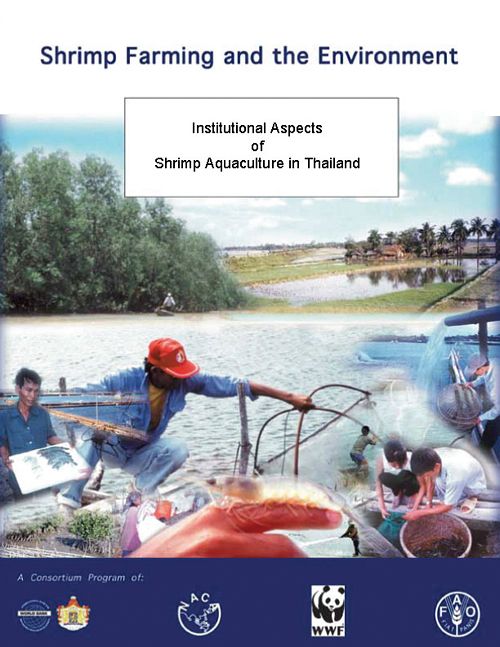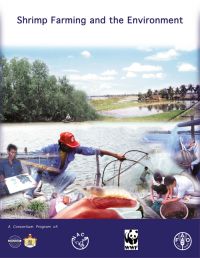A case study on institutional aspects of shrimp aquaculture in Thailand
23 November 2003 | Ayu Nissapa and Somsak Boromthanarat | 950 Downloads | .pdf | 2.35 MB | Better management practices, Governance and Policy, Shrimp, Environment and Sustainability, Thailand
There are several examples in Thailand where (formal and non-formal) farmers associations and local government have worked together to facilitate the development and adoption of better management practices. The Coastal Resources Institute (CORIN) has been particularly active in working on participatory solutions to local environmental problems caused by shrimp farming. This case study documents the success and lesson’s learnt from such local co-management approaches involving farmers associations and local government. The case study also shows the linkages and relationships of institutions operating at different levels of administration from farm to national levels and their effect on management.
The case study is divided into sections that presents several shrimp farming issues; an analysis of institutional supports and mechanism needs for successful shrimp farming management using two different case studies; a synthesis of type of information and delivery systems for sustainable shrimp farming; a synthesis of human skills needed for management of shrimp farming as an option for coastal zone management; and a final section that concludes the study and presents future prospects and adaptive adjustments in the long term.
Copyright, all rights reserved.

